Xinchen Du
Online Statistical Inference of Constrained Stochastic Optimization via Random Scaling
May 23, 2025Abstract:Constrained stochastic nonlinear optimization problems have attracted significant attention for their ability to model complex real-world scenarios in physics, economics, and biology. As datasets continue to grow, online inference methods have become crucial for enabling real-time decision-making without the need to store historical data. In this work, we develop an online inference procedure for constrained stochastic optimization by leveraging a method called Sketched Stochastic Sequential Quadratic Programming (SSQP). As a direct generalization of sketched Newton methods, SSQP approximates the objective with a quadratic model and the constraints with a linear model at each step, then applies a sketching solver to inexactly solve the resulting subproblem. Building on this design, we propose a new online inference procedure called random scaling. In particular, we construct a test statistic based on SSQP iterates whose limiting distribution is free of any unknown parameters. Compared to existing online inference procedures, our approach offers two key advantages: (i) it enables the construction of asymptotically valid confidence intervals; and (ii) it is matrix-free, i.e. the computation involves only primal-dual SSQP iterates $(\boldsymbol{x}_t, \boldsymbol{\lambda}_t)$ without requiring any matrix inversions. We validate our theory through numerical experiments on nonlinearly constrained regression problems and demonstrate the superior performance of our random scaling method over existing inference procedures.
Go-CaRD -- Generic, Optical Car Part Recognition and Detection: Collection, Insights, and Applications
Jun 15, 2020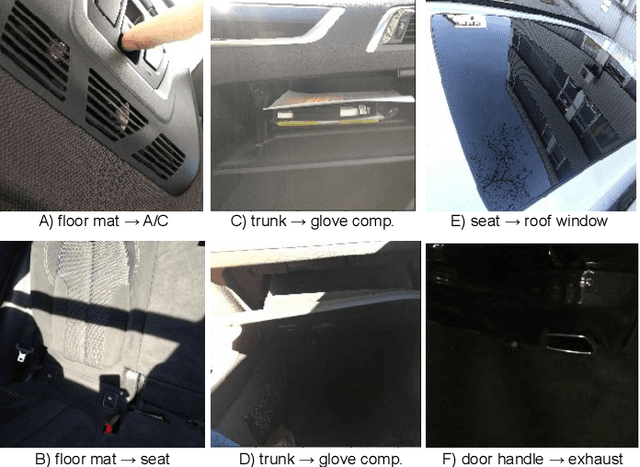
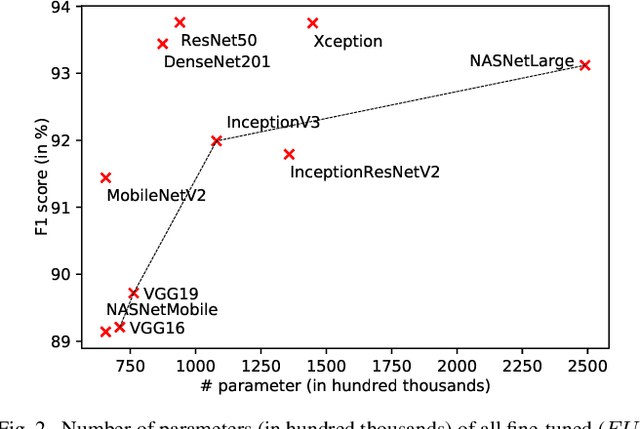
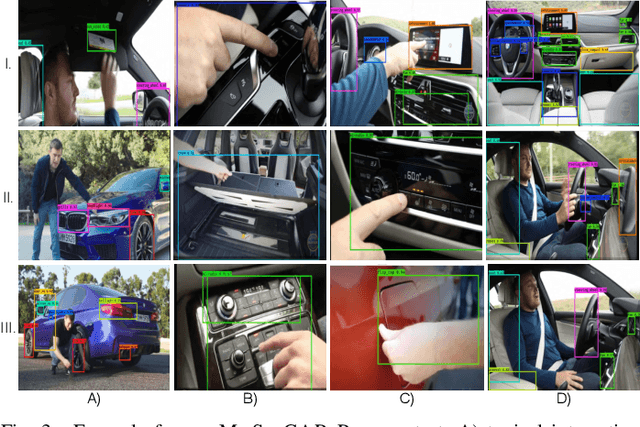

Abstract:Systems for the automatic recognition and detection of automotive parts are crucial in several emerging research areas in the development of intelligent vehicles. They enable, for example, the detection and modelling of interactions between human and the vehicle. In this paper, we present three suitable datasets as well as quantitatively and qualitatively explore the efficacy of state-of-the-art deep learning architectures for the localisation of 29 interior and exterior vehicle regions, independent of brand, model, and environment. A ResNet50 model achieved an F1 score of 93.67 % for recognition, while our best Darknet model achieved an mAP of 58.20 % for detection. We also experiment with joint and transfer learning approaches and point out potential applications of our systems.
MuSe 2020 -- The First International Multimodal Sentiment Analysis in Real-life Media Challenge and Workshop
Apr 30, 2020

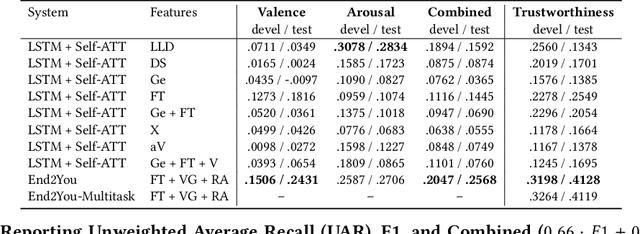
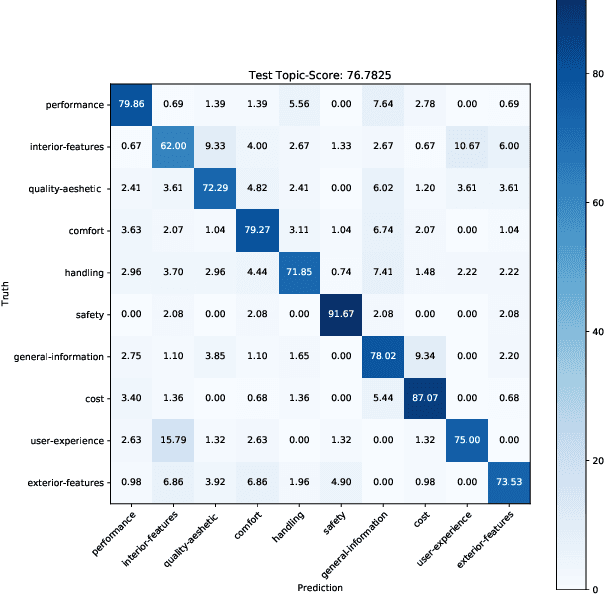
Abstract:Multimodal Sentiment Analysis in Real-life Media (MuSe) 2020 is a Challenge-based Workshop focusing on the tasks of sentiment recognition, as well as emotion-target engagement and trustworthiness detection by means of more comprehensively integrating the audio-visual and language modalities. The purpose of MuSe 2020 is to bring together communities from different disciplines; mainly, the audio-visual emotion recognition community (signal-based), and the sentiment analysis community (symbol-based). We present three distinct sub-challenges: MuSe-Wild, which focuses on continuous emotion (arousal and valence) prediction; MuSe-Topic, in which participants recognise domain-specific topics as the target of 3-class (low, medium, high) emotions; and MuSe-Trust, in which the novel aspect of trustworthiness is to be predicted. In this paper, we provide detailed information on MuSe-CaR, the first of its kind in-the-wild database, which is utilised for the challenge, as well as the state-of-the-art features and modelling approaches applied. For each sub-challenge, a competitive baseline for participants is set; namely, on test we report for MuSe-Wild a combined (valence and arousal) CCC of .2568, for MuSe-Topic a score (computed as 0.34$\cdot$ UAR + 0.66$\cdot$F1) of 76.78 % on the 10-class topic and 40.64 % on the 3-class emotion prediction, and for MuSe-Trust a CCC of .4359.
 Add to Chrome
Add to Chrome Add to Firefox
Add to Firefox Add to Edge
Add to Edge